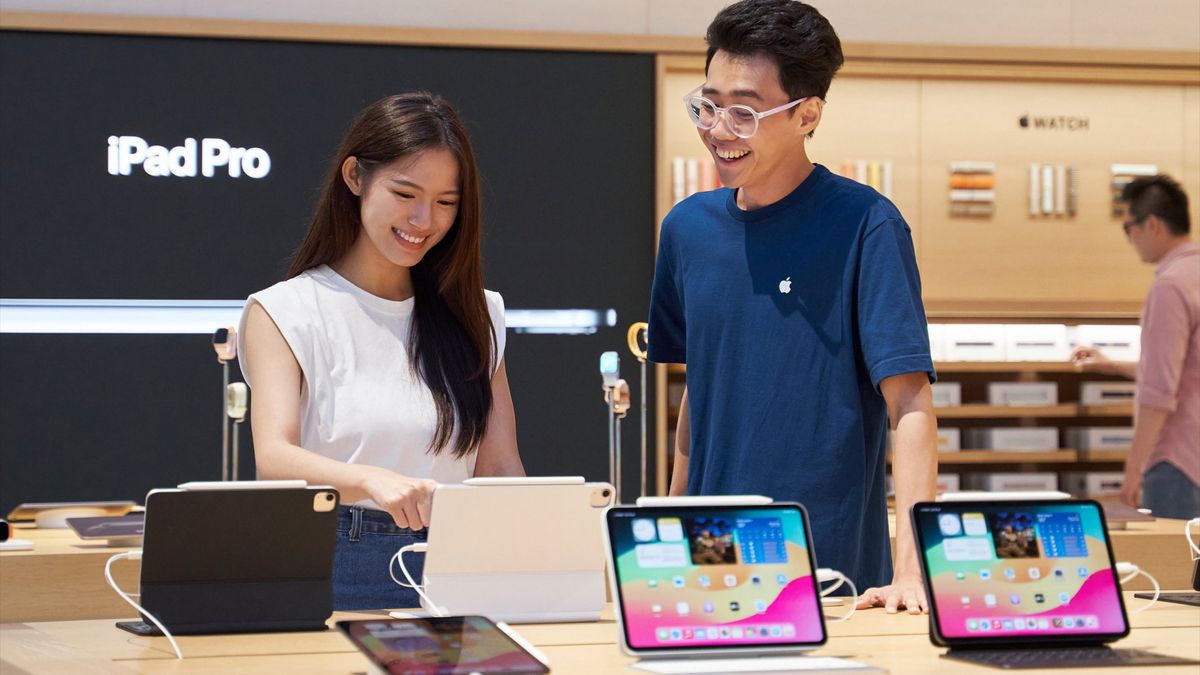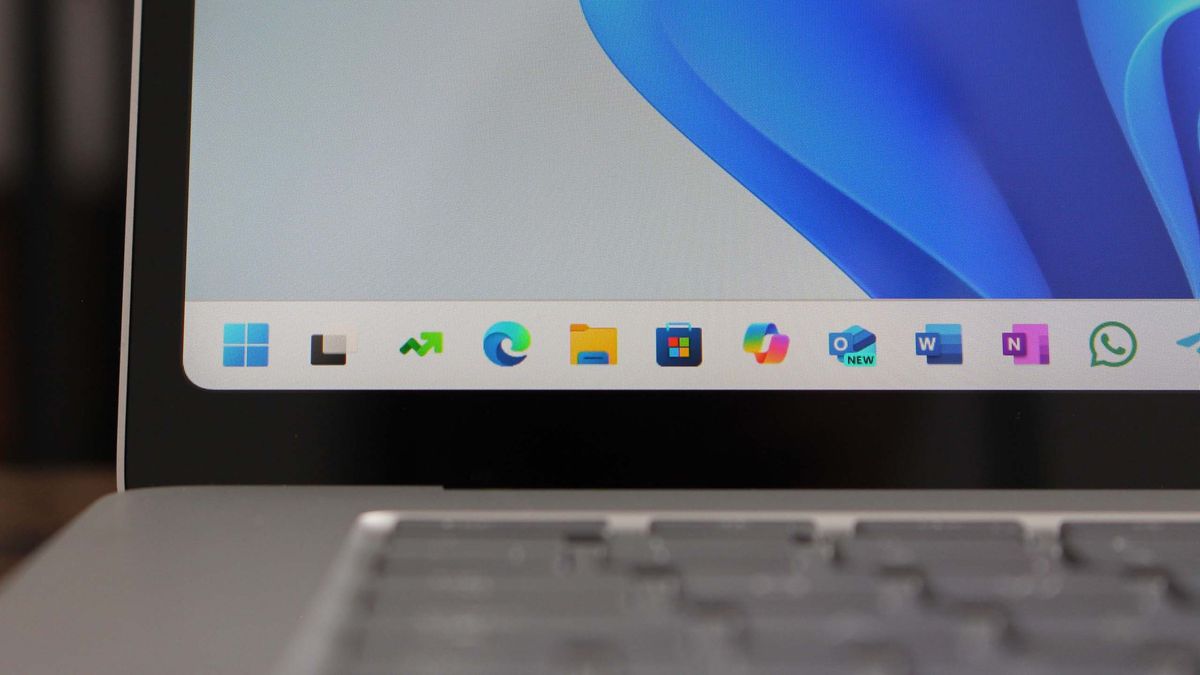If you’ve ever visited an Apple Store (or worked in one like I have), you’ve probably noticed that they’re quite easy to steal from. In the quest for fancy store aesthetics, Apple has eschewed many of the trappings of retail that are commonplace in other shops, notably security scanners at its front doors and tags on accessories. Its hero products (its best iPhones, iPads, etc) are held in place by electronic security tethers, and the devices themselves are geo-locked to the stores they come from, deterring some (but not all) mischief makers — but it’s not exactly Fort Knox. Even the security teams Apple employs in its stores are primarily placed to keep staff and customers safe, rather than to prevent theft.
While Apple has at least taken some steps to prevent hardware theft from its stores, in 2024, the company is facing a bizarre and ingenious form of software piracy of its own making that’s taking the internet by storm, a process that involves swiping apps from right under its nose using one of its most popular iPhone features. That’s right, viral pirates are AirDropping Apple’s own proprietary (and expensive) software directly from its in-store demo devices and taking it home to use for themselves. Despite the recent internet buzz around the process, it turns out that people have been doing this for some time…
We’ve uncovered posts on X and Reddit, and spoken to one such Apple store “customer,” and all the signs point one way.
The curious case of Apple Store piracy
“Man has found a way to get official versions of paid apps for Mac for free without paying hundreds of dollars for them,” an anonymous account on X revealed, Sunday. “He simply came to the Apple Store with his Mac and transferred application files from exhibition models via AirDrop,” and he’s not the only one.
“I went to the 5th Avenue Apple Store today and AirDropped myself the entire suite of Apple Pro Apps,” user David Jiang boasted. “Basically stole $600 worth of software from the Apple Store lol.” Even the r/Piracy subreddit was impressed. While some commenters were skeptical about the ins and outs of the process, plenty of people seem to believe that it works. “Apple applications are self-contained in a .app archive. All of the relevant files, libraries, etc are stored in that archive (in most cases)… Simply moving that .app from one computer to another “installs” that application on the new computer,” one explained.
One slightly less impressed Redditor pointed out the obvious: “That guy’s a moron for spilling the beans.” Naturally, as you’d think Apple would be onto this like a flash. However, a r/MacOS subreddit post from five months ago seems to indicate Apple hasn’t caught on, or perhaps just doesn’t care: “I tried this today by airdropping Final Cut, Logic Pro, Compressors, and Motion to my iPhone and AirDropping it to my Mac at home. It does work…” but there’s a major caveat. The stolen software, of course, doesn’t get updated, and trying to update it will throw up an error. Hilariously, I’ve seen comments suggesting that people who encounter this simply return to their Apple store and re-steal the latest version. That five-month-old post itself refers back to a year-old post in the same space, and I’ve seen suggestions the practice has been known since as early as 2017.
“It’s a very simple process,” one AirDropper who asked to remain anonymous told iMore, “every Mac application is a .app file so we can share them as we want, and since Apple just sells its apps (instead of selling a license or a subscription like Adobe does), it works just with the .app file.” The same source says that there’s no verification process or checks to confirm the Apple ID, as this only seems to happen when the app is updated. One Reddit post asked “this is absolutely traceable, right,” but because the software is stolen and not tied to an Apple ID, it seems it isn’t.
For “obvious” reasons, we’ve not tested this ourselves, and we absolutely don’t condone it. But the internet is awash with reports that pirating software from Apple is incredibly, easy, yet the company doesn’t really seem to care. There’s an easy fix, of course, which is to disable AirDrop on in-store demo devices. However, Apple prides itself on offering an in-store experience to customers that’s organic and free, and clamping down on certain features — features it would ideally use to demonstrate the power of Apple’s ecosystem to customers — is anathema to Apple’s retail ethos. It would be like visiting a car dealership and being shown a vehicle with all the seats removed because they sometimes get dirty.
We’ve reached out to Apple for comment.



